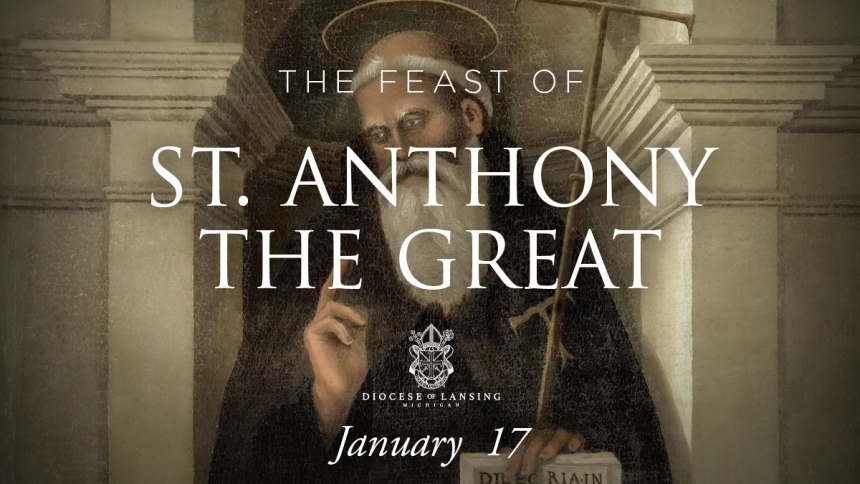
Having the name Anthony, I have numerous times throughout the year to celebrate saints whose name I share – and one such Anthony is the Father of Monasticism, writes Father Anthony Strouse, Pastor of Saint Matthew in Flint, upon the Feast of Saint Anthony the Great (251 - 356), January 17. Father Strouse continues:
This particular Saint Anthony goes by many epithets: Saint Anthony of Egypt; Saint Anthony of the Desert; even Saint Anthony the Great. And Anthony has many great things about him: he lived to the age of 105; he is given credit as forming the first monastic community from people who wanted to follow his plan of holiness and so went out into the desert with him; he had great battles with the devil, who thought that Saint Anthony would fill the desert with saints if people followed his way of life. But one great aspect that I want to focus on, especially given my role as Chair of the Diocesan Worship Commission, is how Saint Anthony allowed the liturgy to form his life.
According to the biography that Saint Athanasius in the 4th century wrote, Anthony grew up in Egypt, and his family had a great deal of wealth. But his parents died when he was around eighteen or twenty years old, so he inherited all their wealth. But, less than sixth months after his parents died, he went to Mass and heard the Gospel which included Matthew 19:21, where Jesus says to the rich young man, “‘If you wish to be perfect, go, sell what you have and give to [the] poor, and you will have treasure in heaven. Then come, follow me.’” By the grace of the Holy Spirit, Anthony knew that Jesus did not only intend the words for the rich young man from the Gospel, but also for young Anthony, another rich young man, some two hundred years after Christ ascended. After that encounter with Jesus in the Mass, Anthony started to give away all that he had and eventually moved out into the desert.
Maybe we have not had one experience at Mass that changed our life so dramatically, but Christ is present in each Mass. And the Mass is our chief encounter with Christ. Christ is present through the people, through the priest acting in His Name and with His power, through His Word, and especially through the Eucharist (cf. Sacrosanctum Concilium, n. 7). So, every time we attend Mass we encounter Christ in those four ways, and, like Saint Anthony, that encounter with Christ can change our lives. Next time you go to Mass, as you’re pulling in the parking lot or kneeling down in prayer before Mass begins, ask the Holy Spirit to allow you to experience how Christ wants you to encounter Him at that Mass. It could change your life and help you to be great like Saint Anthony!
